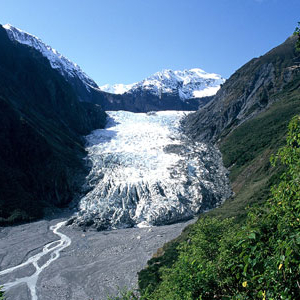Glacial impact assessed
 Experts have come up with a new estimate of sea level rise from glaciers.
Experts have come up with a new estimate of sea level rise from glaciers.
Glaciers contributed approximately 27 millimetres to global mean sea-level rise from 1961 to 2016, according to the new paper.
Taking into account statistical uncertainties, the findings suggest that the mass loss of glaciers may be larger than previously reported.
Globally, glaciers have an estimated total volume of 170,000 cubic kilometres, which excludes the Greenland and Antarctic ice sheets.
However, due to methodological challenges, it has been difficult to accurately determine how changes in their volume and mass contribute to our rising sea level.
Researchers at the University of Zurich have used observational data collected from over 19,000 glaciers using two different methods to determine mass changes between 1961 and 2016.
From this they show that glaciers contributed around 27 millimetres to global mean sea-level rise over this period.
The authors then calculated the mass-change rates for glaciers from 2006 to 2016 and found that this decade alone contributed nearly one millimetre each year to sea-level rise.
This would suggest that the current rate of contribution from glaciers to sea-level rise is about the same as that from the Greenland Ice Sheet and exceeds the contribution from the Antarctic Ice Sheet.
Based on their findings, the authors suggest that glaciers could almost disappear in some mountain ranges by 2100 (including the Caucasus, Central Europe, Western Canada and the USA, and New Zealand).
However, regions with many glaciers will continue to contribute to sea-level rise beyond this century.







 Print
Print